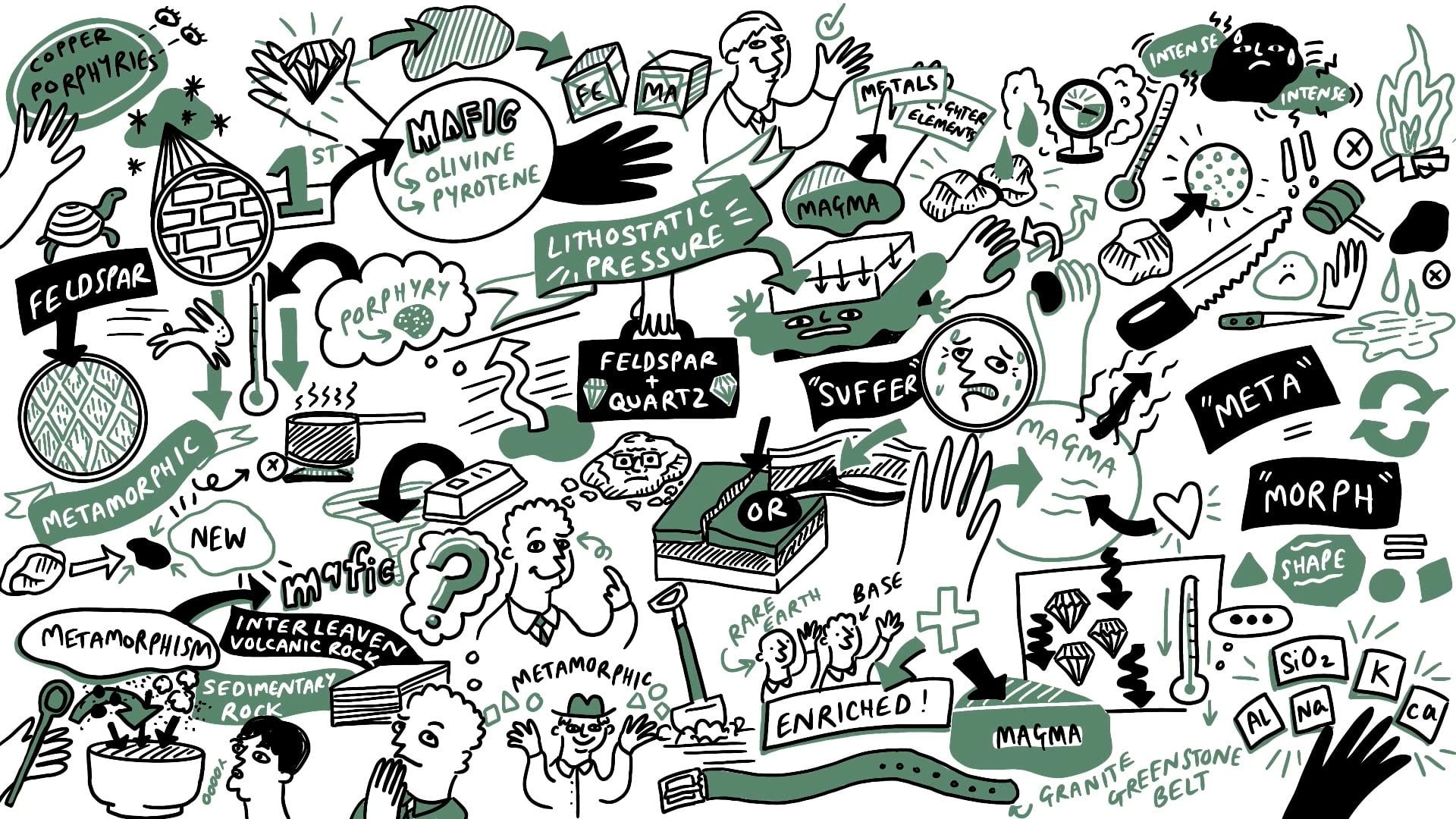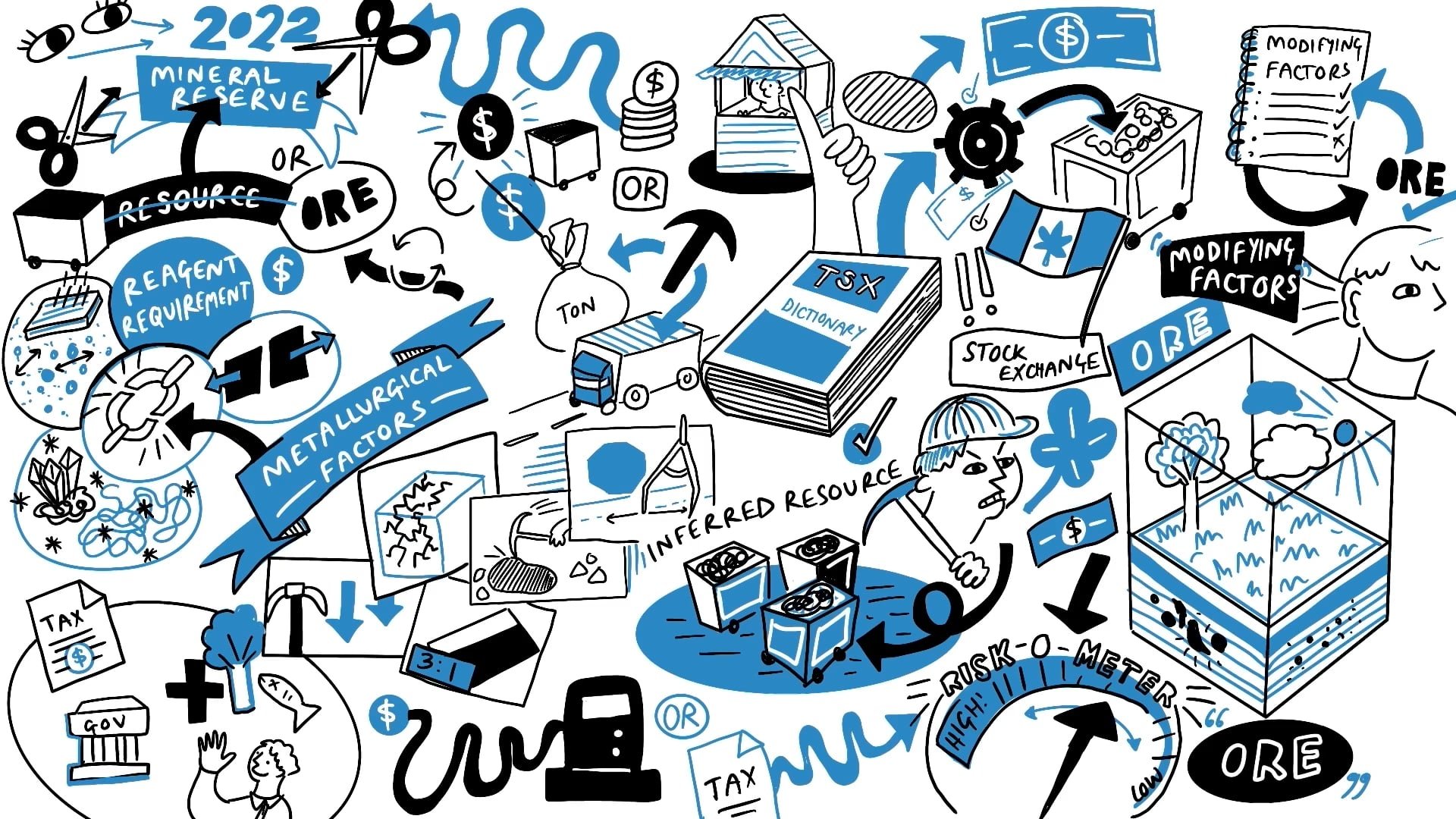Permitting: Government & laws
More episodes
Transcript
I remember speaking to a consultant in Sweden, and she's based up in the north of Sweden, and she's saying the thing about Sweden is that it got a cover strong mining cuts, but they don't really in the government departments, they don't really understand the risks and the problems associated with mining. They don't really get that involved in actually what I'd rather have more regulation, I'd rather have more control and more oversight, because then some of the sloppy practices that the mines do wouldn't happen, that we'd get less bad press. There'd be fewer spillages or slips or accidents and the whole thing just be tightened up. It's akin to having like a well run secondary school where there's a good head teacher with lots of clear rules. And it just hums like a good machine rather than, you know, being a bit loosey goosey and things can slip out of control quite quickly. So, Canada have been improving their permitting process. There are lots of countries where there is that expertise in the government, for example, if you want to do exploration in Ireland or development in Ireland, people will say oh, no, you can't go to Ireland. It's kind of Western Europe or some parts of Germany go to the Saxony part of Germany. Oh, my goodness in Saxony, Germany and Ireland. They've got these experienced government administrators in Ireland within the exploration and mining division is the EMD they've got fantastic expertise and they've often worked in industry or they've assisted industry for years. And there's very clear and transparent way to get your prospects in licences and to get your mining leases and licences, they're super, super nice people and its really good fun. And you can drink a bit of Guinness, of course, but they've been associated with the mining industry in the decades and they've really know what they're talking about.
Not only that, but the government has supported something called iCRAG, which is the sci fi Research Centre for Applied geosciences. And you've got a bunch of researchers, several of them have worked in industry before, who are dedicated to creating solutions for sustainable society. They're linked to the University of Trinity and particularly University College, Dublin. If you're looking at some modelling or some structural analysis in Ireland, you can call up iCRAG and they will help they will say, Oh, yeah, we looked at this, we've done some kind of inversion modelling on the geophysical data, or we've done some structural analysis. And this is where we think that the Lead, Zinc is associated with extraordinary supportive service. With country also funded the teller service, they remapped entire country over a number of years with detailed geophysics, which has enabled a complete rethink of the geology of the country, which is super.
But in 2018, the Zinc price picked up at the 2016 or 17 and in 2017, everyone was looking for Zinc. And that translated into a bunch of companies exploring for Zinc in Ireland in 2017, 2018. And in the middle of that kind of mini-Zinc boom, the EMD the Exploration mine department for Ireland, suddenly put out a notice saying we can't issue any drilling permits, because we've realised that for the last few years, we've been operating illegally under EU law because in order to do a drilling permit, you have to get an environmental licence. And that has to be granted by the environmental agency and it can't be granted under EU law, it can't be granted by the mines department. So there was a sudden panic, the EMD called a conference, everybody met in the hotel in central Ireland, there's a big discussion. And they tried to get a workaround, because what happened was you went from trying to get your exploration permit for drilling, which involves, you've got to get your water from somewhere. So you need to have a permit to show your drawing water from a sustainable source. You also need to show that you are not discharging internally water courses and you're not putting any chemicals effluence into the water system into the groundwater or anywhere else. And then you need to show that you rehabilitate the site and you're trying to tidy up job afterwards.
All of that previously was monitored by the EMD who know exploration drilling, they know RC, they know Diamond, they just know the whole process. And suddenly, it was handed over to an environmental agency who, when they were faced with 100 kind of drill hole applications. They know nothing about exploration drilling. And they started saying, well, if you're going to be doing an oil well, and it's going to cost you $200M and it's going to take you however long, we're going to need to have a full environmental impact assessment. And it's going to take 2-years or so to get the industry code went up in opposite it was chaotic. Because of course, you were ending up dealing with an agency that doesn't understand mineral exploration drilling. There was a hiatus, it got sorted out the responsibilities, the oversight got to fed back to the EMD. And then the sign off came through the environmental agency to make sure that you could all be kosher under European law, but actually, it was ineffective work around. And you see this time and again in Europe. So for example, in Sweden, and to a degree in Finland, you've got your mining permitting, your environmental permitting, all being done by different committees, all who have got different responsibilities under EU law. And in a country, which is so polite, and so democratic, like Sweden, and Finland, nothing happens. And it's not just the fact that people have got different responsibilities. But I think it's in the very modern sense, you know, we're very careful about other people's feelings. And it's not just about the feelings of other people. It's also the feelings of the reindeer. My sister was trying to convert her house or she was trying to put an extension on the back of her house in Wales and she got involved with the local surveyors, who said, Are there any bats here? And they came to the backside of it, oh, we found the bats in your roof. And it delayed the process for a year or two. And eventually she was resorting to ask who runs this country? You know, is it people or is it bats?
And if you go to Scandinavia, you could well ask the same question who runs the country? Is it the people or is it the reindeer, because in Scandinavia at the moment, the Sámi have got a veto on mining projects because of the reindeer migration and it is something very complicated that you've got to get involved with and it does ask time and money. Now, I love that and I also love reindeer and I also love respecting other people's feelings. But the problem arises when you have people making decisions about things which they have no idea and no experience in their training. And so you say right, we're going to build the mine and they go oh, because they don't know what’s involved which is why it's important to be working in a country where the decision making people have got expertise in the area that you're trying to get permitted.














































